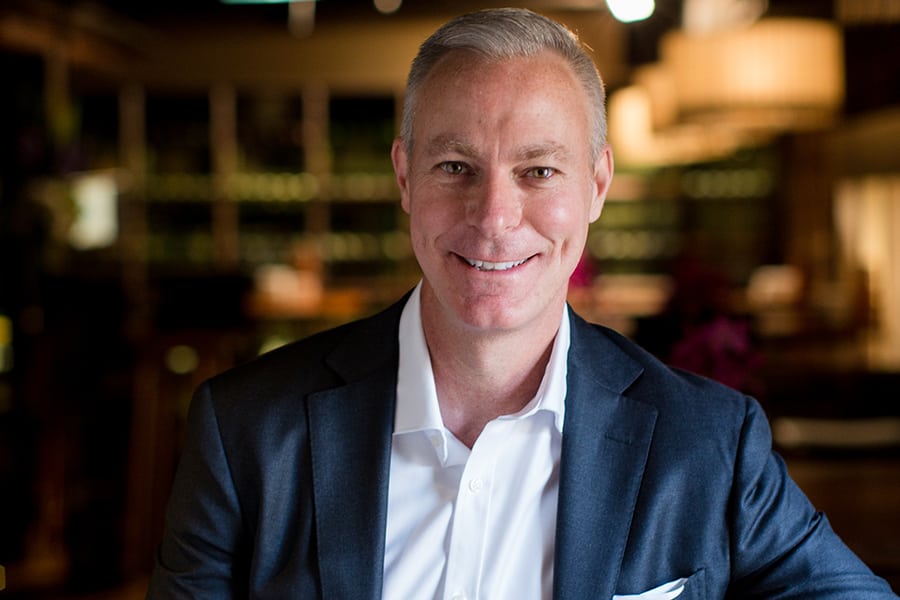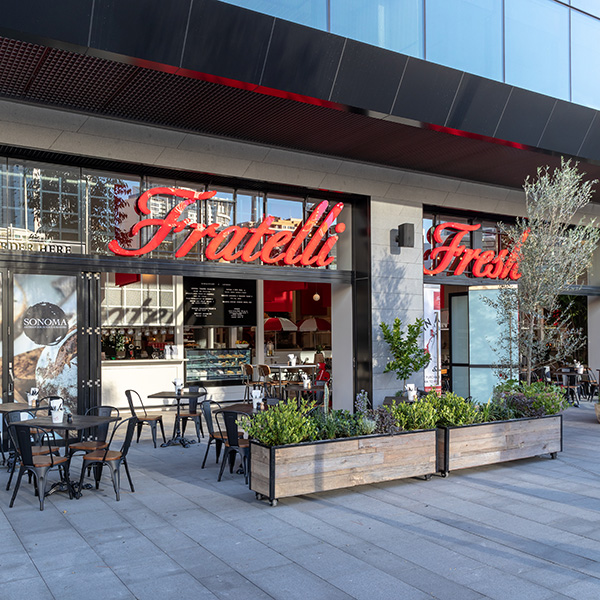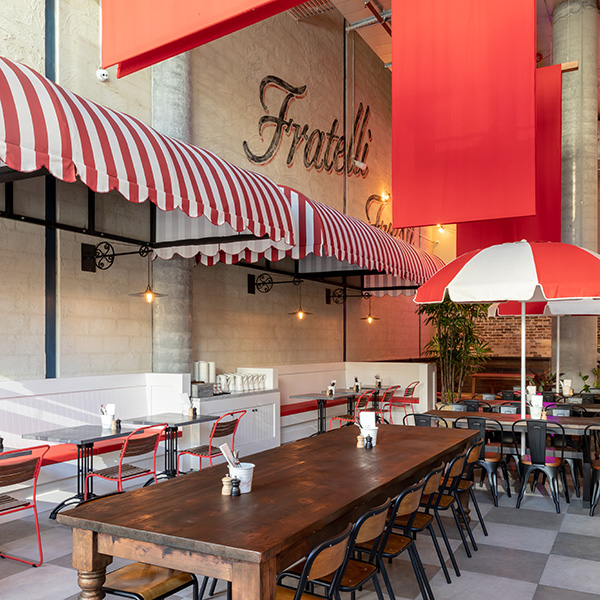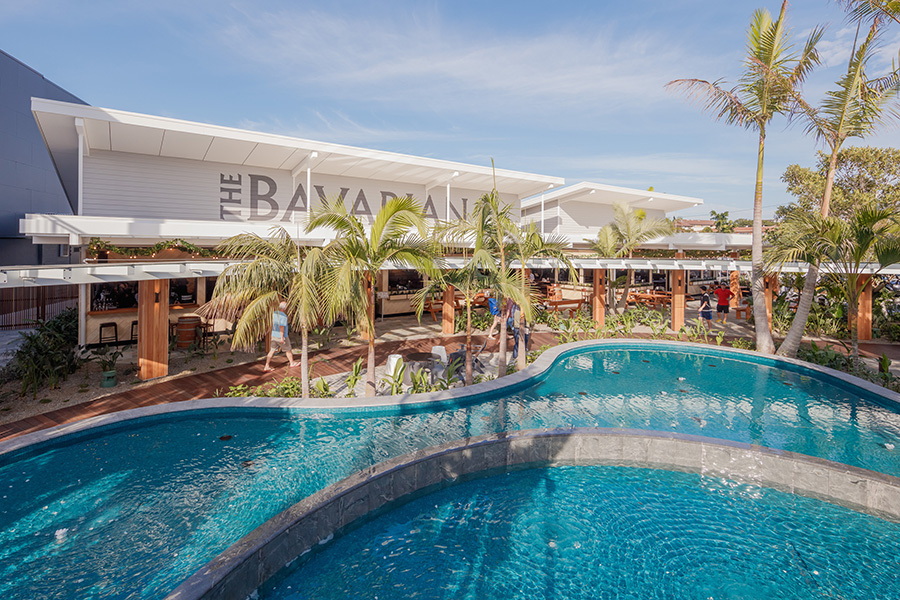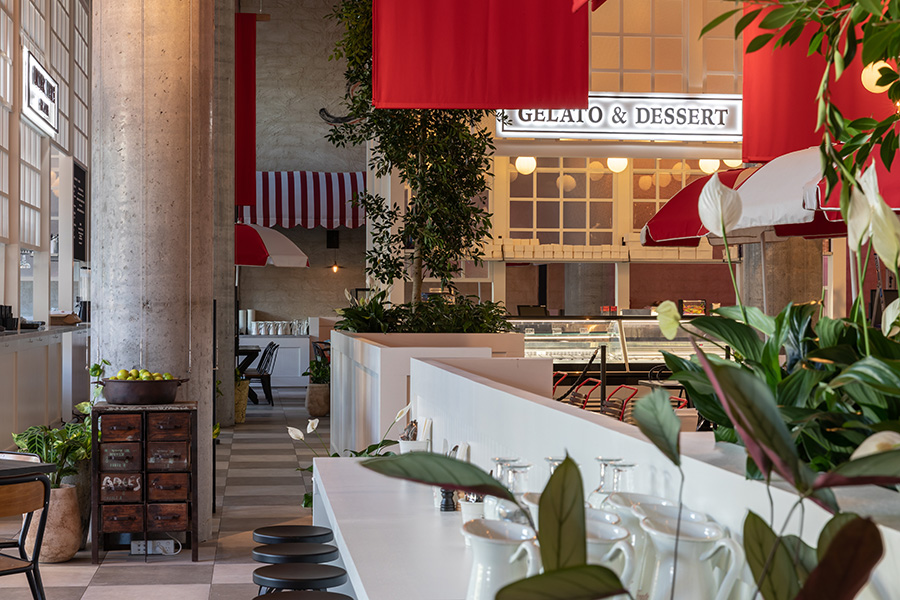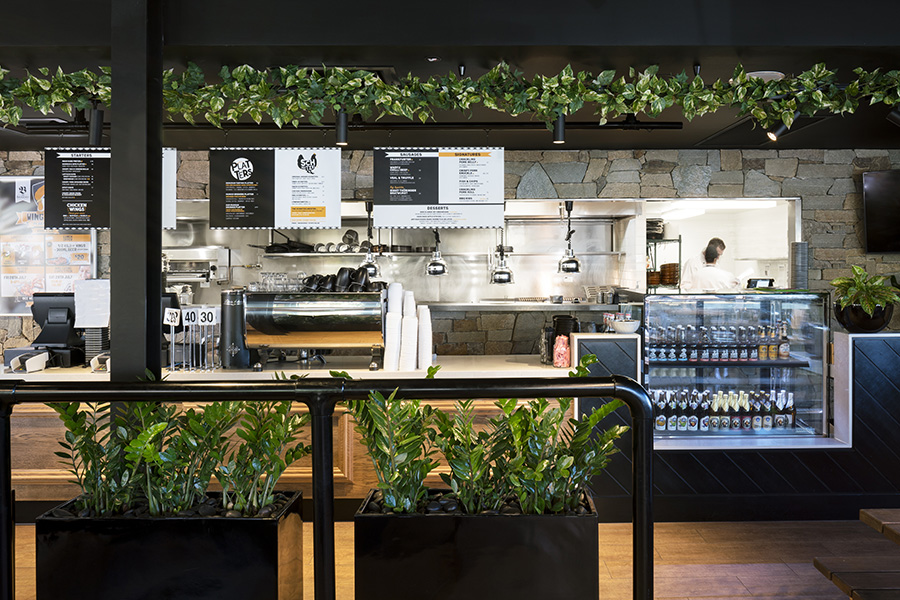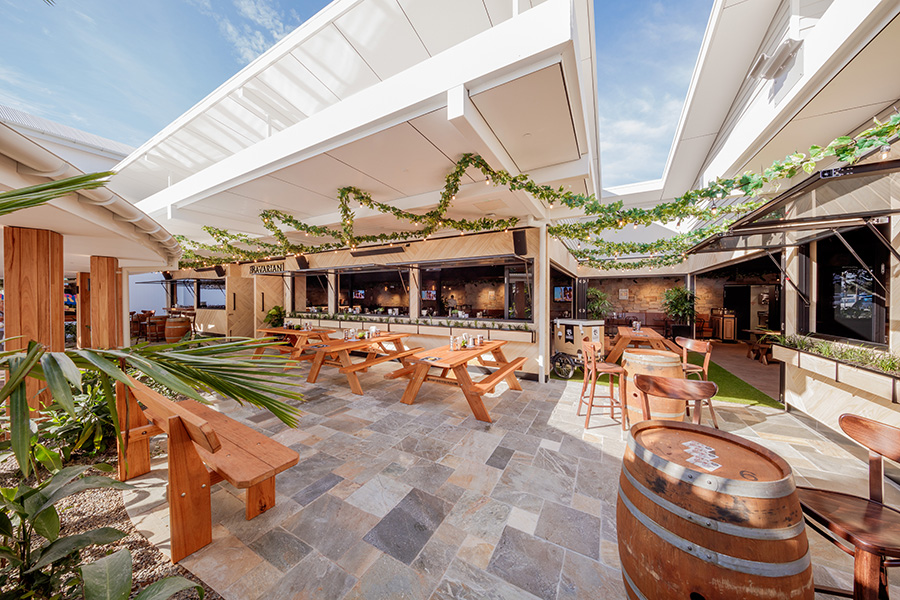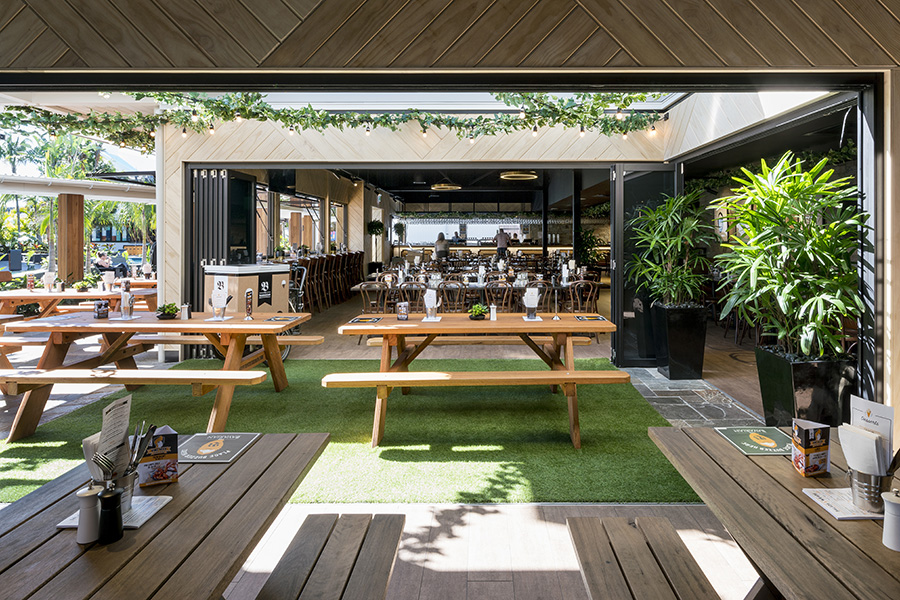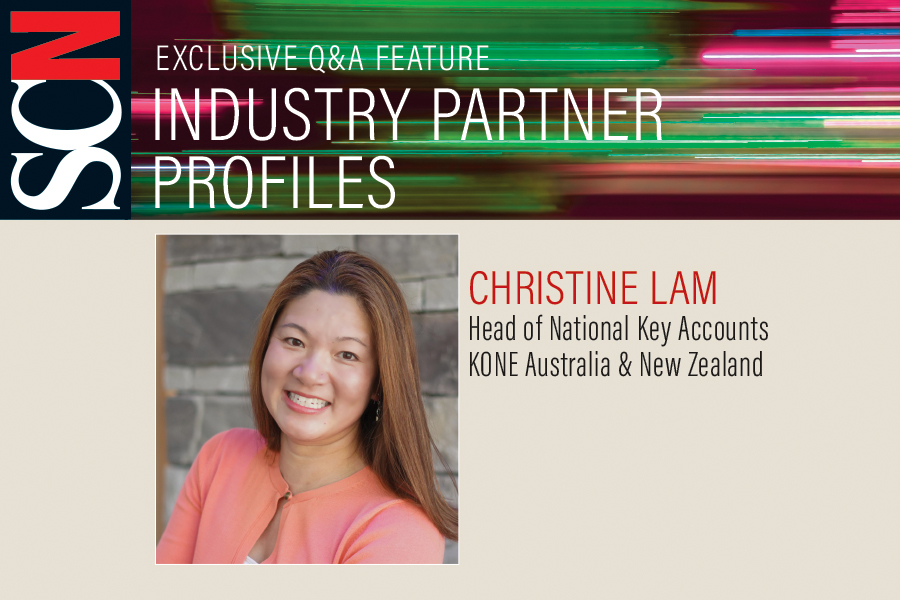This week, we talk to Thomas Pash, CEO of Rockpool Dining Group, Australia’s leading hospitality group, with brands Bavarian, Fratelli Fresh, Saké and Burger Project – just to name a few. This award-winning group is cementing food culture right across the country. Thomas Pash generously shares his career, knowledge and how landlords and food retailers can create successful partnerships.
What is your current role and main responsibilities?
As CEO I have oversight of strategy, financial performance, concept and venue strategy, concept and venue planning and openings, learning, development and organisational culture, HR and recruitment, corporate communications and PR, marketing and sales and events and overall support for our 3,000, and growing, awesome and talented employees.
Tell us a little bit about your career
My first hospitality job was when I was 14 at a ten-table Mexican restaurant In Houston, Texas. I cooked, served, cleaned, you name it I did it. I got my first floor and bar manager job at age 17, my first kitchen manager position six months after that, by the time I was 18 I was the General Manager of a large casual dining restaurant that, in the early 90s, was turning over $125,000 a week. At 22 I was managing my first 2,000 room hotel, at 26 I was running a US$50million celebrity-owned dining group with locations in NYC, LA, Dallas, Houston and Phoenix, and by the time I was 30 I was the COO of a US$2 billion hospitality group with more than 70 restaurants and 34 hotels and resorts. From there I moved into private equity for about a decade and was CEO in residence for a 2B fund. During my time in PE I had the great fortune to lead several great companies through accelerated growth through strategic events such as IPOs and trade sales.
I joined Urban Purveyor Group (now Rockpool Dining Group) in 2014. In 2015, I negotiated the acquisition of the group by Quadrant Private Equity, which spearheaded an exponential growth phase for the business, resulting in 2016 in the acquisition of Fratelli Fresh and Rockpool Group. Since then we have grown the group from 17 venues and $150million in sales to more than 60 venues and sales over $350million.
- Fratelli Fresh, Darling Harbour
What excites you most about your brand?
Rockpool Dining Group straddles multiple dining pillars or categories: premium, casual and fast casual. No one else does that in Australia – at least not on the same scale as us. It’s super exciting to have several best in category dining brands across multiple dining categories and to see each of them grow strategically and/or geographically. In just a few years we have grown from 17 venues to more than 60 and now have the pleasure of serving more than 150,000 meals per week. Thanks to the hard work of our team, it is great to see our venues and brands getting better with each day and seeing our brands become a part of our customers’ lives and their experiences.
We also have brands that scale exceptionally well, like our Bavarian restaurants. We have proven that scalable model in NSW and are now in the process of doing the same in Queensland. Victoria will follow, then new markets such as Western Australia, and even overseas. We have 20 Bavarian venues today and expect to add more than 20 per year going forward, which is also very exciting.
What’s your biggest challenge?
Costs are very high in Australia. Labour is very high and the pay structure is way too complicated. Rents and occupancy costs are high, pretty much all costs across the P&L are higher here than they are in most other markets in the world. That leaves very little room for loss of focus, general mistakes, or loss of financial discipline and controls. The reality is, this market demands close to absolute operational perfection to make a consistent profit and build a sustainable business. Honestly, if you can be successful in hospitality here in Australia, you can be successful anywhere.
Another challenge is the saturation of the dining sector and staying relevant with customers. While people are eating out more than ever and dining is getting a larger share of the wallet, the industry is adding way too many seats. In a couple of key markets we have seen the addition of more than 20,000 new seats, in the past two years. As a group of 60+ restaurants and 16 brands we have efficiencies of scale that aid dynamic and innovative practices, which stand us in good stead in such an over-heated market.
What do you look for when you choose a location to open a new store?
We use some pretty sophisticated data models to determine our core customer density by major, secondary and tertiary markets. So first of all, we map each of our core brands and the total potential customers by market as a first step. Then we look at a range of things, from economic data to census data, to market trends to food and beverage performance and density. We also talk to many of our industry peers and competitors and openly share our data trends in return for their high-level data and market guidance. Lastly, we believe that good visibility, strong traffic counts, and high foot traffic are essential. We not only look to pick the right market but also the right site in that market. We also take into consideration the overall aesthetic appeal of the centre or precinct.
What do you think makes a successful shopping centre?
Our brands tend to do very well in entertainment, lifestyle and dining precincts. We like a good balance of retail, entertainment, exercise options, dining and bars: shoppers want to do more than just shop, they want to socialise over a coffee or glass of wine, exercise, go to the movies, and unwind. The dining offering need to be diverse: quick snacks, grab & go, family meals, more relaxed dining. A successful shopping centre should be comfortable, a place that encourages customers to linger for longer, and to return. A good shopping centre should also be easy to navigate.
Which in your opinion is Australia’s most successful shopping centre?
We work closely with many great developers and operators. Over the past year we have done many incredible projects with Westfield, QIC, GPT, Lendlease, Dexus and others. All of them are doing some amazing projects right now, many of which are planning to open, or have opened, state of the art entertainment, lifestyle and dining precincts. A couple of shopping centres that stand out for me over the past 12 months would be Westfield’s new dining and entertainment precinct at Chermside in Brisbane and Lendlease’s Darling Quarters/Kitchens development in Sydney. Both are incredible projects and have performed very well for our group. I also really like GPT Group’s Town Centre shopping precinct at Rouse Hill. They’re been a great team to work with and the centre really has a unique, fresh offer and approach.
- Fratelli Fresh, Darling Harbour, Sydney
What are the best landlords doing well?
Divesifying their tenancy mix and introducing services tenants, including play centres, medical centres and gyms, auto dealerships, as well as non-traditional tenants such as pet supplies, so they truly become a one-stop-shop, and offer an overall experience. Good landlords are also flexible on lease terms, including offering tenants incentives and contributing to fit-outs.
What could shopping centres be doing to help your business?
Activations during the slower months would be a good start. There are some really slow months and they could do more to improve traffic during those periods. Improve signage and marketing assets for tenants’ use, providing more marketing support through their own channels, offering whole-of-centre loyalty programs to encourage customers to visit a broader range of stores, organising events such as fashion shows, art exhibitions, games, tastings and workshops to encourage customers to visit the centre for more than just traditional retail, and to stay for longer.
What could the shopping centre industry overall be doing better?
Improving individual shopping centre identity and diversity rather than taking a one-size-fits-all approach. There are too many trying to do the same exact thing which leads to lack of diversity. I see some centres that have upwards of 20-30 of the same food offers. There really should be some protection for some of the larger, strategic retailers.
What could help the relationships between retailers and landlords?
I know this won’t go down well with some of our landlords, but many F&B rents and commercials here are too high for this current economic environment. They are not sustainable as we move forward. There is no wage growth here and household disposable income is really under pressure right now. People have less money right now to spend on discretionary items like dining out. The pressure that households are under flows down to retailers and F&B operators and makes for a challenging environment, especially as rents have continued to track upwards for the best sites.
What’s your biggest gripe about shopping centres?
Finding your way back to your parked car for one. Many centres are really hard to navigate as well. I can never understand those touch screen digital centre maps and how to follow the arrows. I always end up going the wrong direction. I also prefer centres with outdoor shopping and dining options, and lots of natural light.
What do you think will be the most dramatic changes in shopping centres in the next 5-10 years?
The shopping centre of the future will offer ultimate levels of convenience, leisure and entertainment and cultural experiences, which can’t be satisfied online. They will encourage friends and families to spend time with each other, not with technology. They will be melting pots of retail, including farmers markets and ethnic shopping experiences; services, including fitness centres and spas; entertainment zones, including bowling, go karts, art centres, concerts; and event spaces.
What’s your best performing store and why?
Our Bavarian and Fratelli brands work very well in medium and large shopping centres, especially the ones with newer dining and entertainment precincts and catchments of 200,000 people, or more. Our typical Bavarian and Fratelli venue does more than $6.2million per year when located in a top 40 or 50 centre. The formula just works for us and it’s one we plan to ride for many years to come.
What makes a successful retailer?
Knowing your target customer demographics and understanding the dynamics of the economic climate. Also, the key to building great retail brand stickiness with consumers is making sure you always look to give the customer what they want, plus more. You have to give customers that extra 5 percent above their expectations. When you’re fighting for a portion of the consumer wallet and or a share of their discretionary spending, you have stand out amongst the competition. Giving customers 95 percent of what they want won’t work in today’s hypercompetitive retail environment.
What other retailer(s) do you admire?
I love to walk centres and watch how consumers respond to certain brands. It is easy to see which retailers are winning or losing by the traffic and queues. Clearly Gucci and Louis Vuitton are executing well and winning right now. So are Lululemon, MJ Bale, Tumi and Hermes.
In terms of food, David Jones is doing a nice job with their new food markets and halls. I love the environment and breadth of their F&B offer. Our Culinary Director Neil Perry has done a great job teaming with DJs to make it a food experience and destination. I also like Guzman and Gomez a lot and think they execute very well and are quite innovative as a brand. Other great high quality operators and brands that stand out for me are Merivale, Solotel, Time Zone, Boost Juice and Event Cinemas.
- The Bavarian, Westfield Chermside


